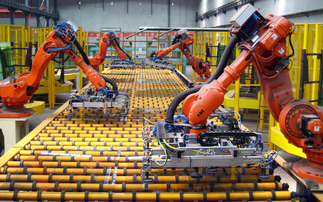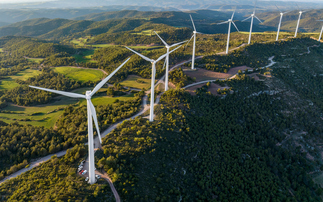The latest update on the government's fracking strategy somehow manages to add several more major weaknesses to Number 10's shale gas vision
4. Is there really £1bn worth of shale gas tax revenues just waiting to be diverted into the government's Wealth Fund?
The inconvenient reality to set against all the breathless stories of a fracking boom is that no one knows how much shale gas and oil, if any, can be economically extracted in the UK, especially at a time of low gas and oil prices. The hype has run ahead of the reality for years, fuelled by the government's senseless choice to focus on bigging up the industry far beyond its capabilities, galvanising opposition in the process, rather than quietly orchestrating some government-backed test wells.
The contradiction that Theresa May wishes to ignore is that either there is nowhere near as much economically viable shale gas to justify the huge levels of hype, or there is and it will require a level of industrialisation to extract that will threaten the UK's carbon budgets and lead to a reshaping of the British landscape that few rural Conservatives will countenance.
5. Bribes are divisive and have a habit of backfiring
The promise of sizeable cash payments to households in communities impacted by fracking may have won May some favourable headlines, and the proposal is now presumably highly likely to be enacted given how keen the Prime Minister's office were to let it be known this was her idea.
But will it work? No doubt some waverers will be won over, but others will only wish to redouble their opposition in the face of what they will see, quite rightly, as an attempt to buy their silence.
For those sceptical about the case for fracking it will appear that the government's argument now boils down to: 'there is nothing wrong with fracking and it poses no threat to your home, community or environment, but because of your mistaken belief there is a risk here's some cash'. You can see why they are likely to be left unconvinced.
It is also worth noting that bribes are an inherently divisive, and, to borrow a term Theresa May once utilised, rather nasty mechanism for securing support for a project. The government's proposal threatens to set neighbour against neighbour, friend against friend, and stir an already combustible mix with the lure of cold hard cash and the counter-appeal of generational and environmental justice. It is a recipe for making already heated disagreements and protests even more passionate.
There are good reasons why previous governments have looked at the idea of straight cash bribes for overcoming local opposition to projects and trod very carefully. May's approach is what seasoned civil servants would term 'a brave choice, Prime Minister'.
Finally, if, as the government hinted, cash payments to fracking communities could be a model to be followed by other infrastructure projects it threatens to have huge repercussions for the planning system. The whole approach runs completely counter to Theresa May's initial pitch for One Nation politics that seeks to unite the country.
"The government I lead will be always be driven by the interests of the many - ordinary families for whom life is harder than many people in politics realise," May said. "As I said on my first night as prime minister: when we take the big calls, we'll think not of the powerful but of you. This announcement is an example of putting those principles into action. It's about making sure people personally benefit from economic decisions that are taken - not just councils - and putting them back in control over their lives."
But offering cash payments to households that qualify for a benefit through an accident of geology is the precise opposite of being driven by the interests of the many, it is bribing one community and ignoring another. It is less One Nation, more one village against another.
Community investment in new infrastructure, community benefits, or even council tax breaks offer a much less divisive mechanism for addressing local concerns about new projects. In contrast, cash payments threaten to open up a hornets nest of difficult questions about which projects should qualify, which households should benefit, and why we should not all receive compensation from the climate impacts of new high carbon infrastructure?










